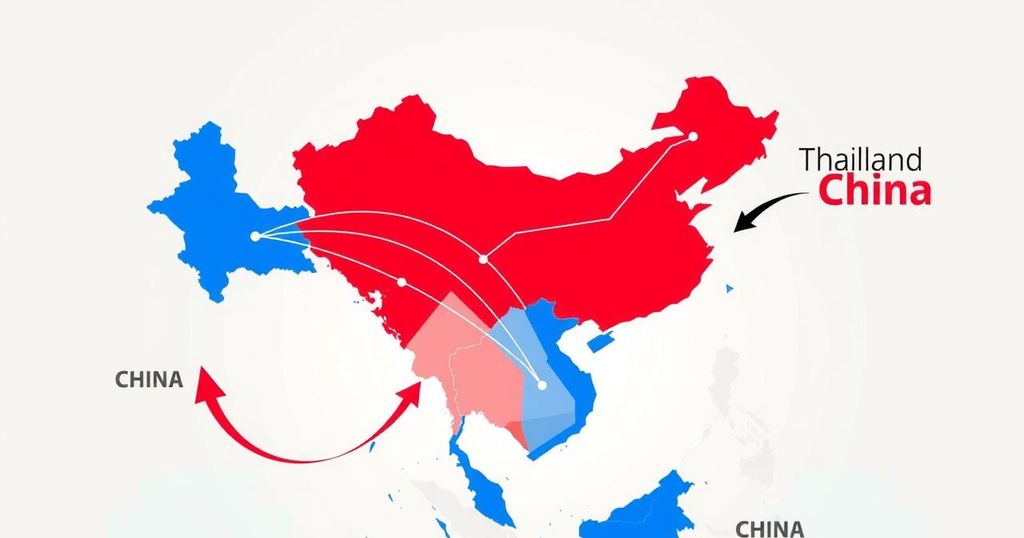U.S. Imposes Visa Sanctions on Thai Officials for Uyghur Deportations

The U.S. has announced visa sanctions against Thai officials involved in the deportation of Uyghurs to China, citing the risk of torture and violation of human rights. U.S. Secretary of State Marco Rubio emphasized the global responsibility to protect Uyghurs from forced return, while Thai officials faced consequences for their actions. This incident underscores a rare tension between the U.S. and Thailand, emphasizing the need for accountability in human rights matters.
On March 14, 2025, U.S. Secretary of State Marco Rubio announced visa sanctions against Thai officials who were involved in the deportation of 40 Uyghurs to China. These individuals, detained in Thailand since fleeing Chinese persecution in 2014, are at risk of torture and other human rights violations in China, which U.S. officials characterize as an ongoing genocide. The Thai government’s actions have drawn widespread condemnation from the U.S., European Union, United Nations, and various human rights organizations.
Rubio emphasized that the sanctions would affect Thai officials who were either responsible or complicit in the forced deportation, stating that such actions subject the Uyghurs to severe human rights abuses. He urged governments worldwide to refrain from deporting Uyghurs and similar groups back to China, highlighting the need for a coordinated global response against such practices. Additionally, family members of the implicated officials may also face travel bans to the United States.
While the State Department did not disclose the specific names of officials affected by the visa ban, it maintains privacy under U.S. immigration laws. The United States has categorized China’s treatment of Uyghurs, including accusations of torture and forced labor, as genocide since 2021, a characterization that Beijing denies, insisting it promotes development in Xinjiang.
The sanctioning of Thai officials marks a significant point of tension between the U.S. and Thailand, a long-standing ally. Following the February deportation, U.S. diplomats reportedly offered to resettle the Uyghurs in the United States or a third nation, with Australia and Sweden proposing similar options. In response, Thai officials indicated they chose deportation to avoid potential retaliation from China.
Rushan Abbas, from the World Uyghur Congress, expressed support for the visa sanctions, indicating that this action serves as a warning to governments that cooperation with China in the repatriation of Uyghurs will have consequences. She underscored that returning Uyghurs to China places them at grave risk, equating forced return to a death sentence due to the severe human rights abuses they would face. This policy reinforces the notion that aiding in China’s human rights violations will not be tolerated.
In summary, the U.S. has imposed sanctions on Thai officials due to their involvement in the deportation of Uyghurs to China, which poses severe risks to the individuals’ safety. This incident highlights the ongoing concerns regarding human rights violations in China, the importance of global diplomatic pressure, and the ramifications for nations assisting in such deportations. The U.S. aims to assert that cooperation with China in these matters will not go unpunished and emphasizes the necessity of protecting vulnerable populations.
Original Source: www.benarnews.org








